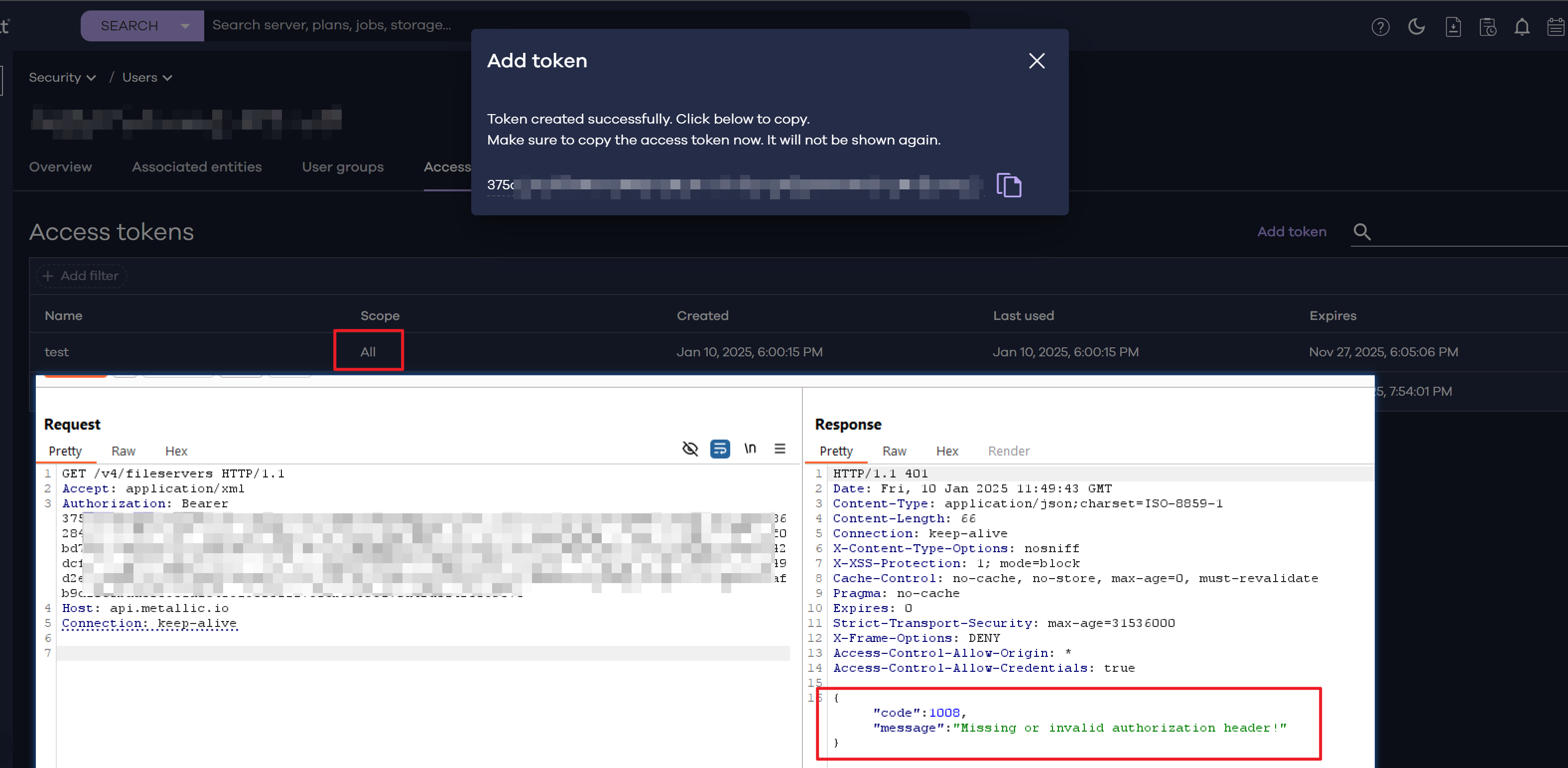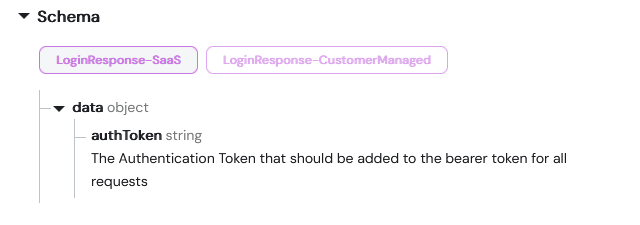Hello,
I created an access token in the CV portal via “Security->Users->Access tokens->Add token” and the “Scope” was selected to “All”. However, when i tried to use the access token to send an API request like below, the server returned “Missing or invalid authorization header!”.
GET /v4/fileservers HTTP/1.1
Accept: application/json
Authorization: Bearer QSDK <access token generated in the portal>
Host: api.metallic.io
Connection: keep-alive
Appreciate if anyone knows how to use the access token.









